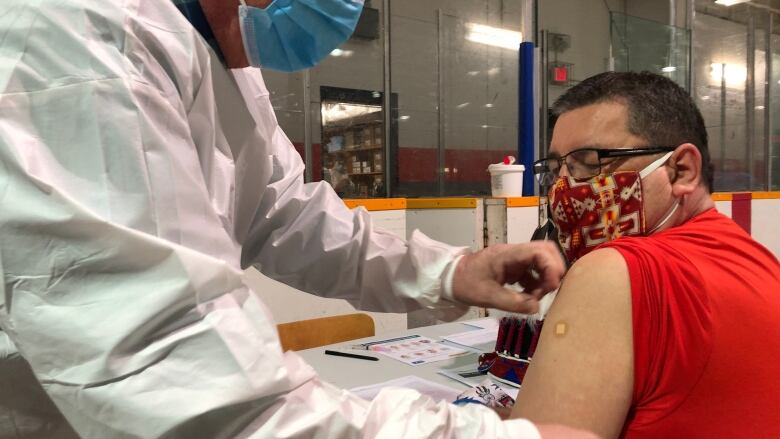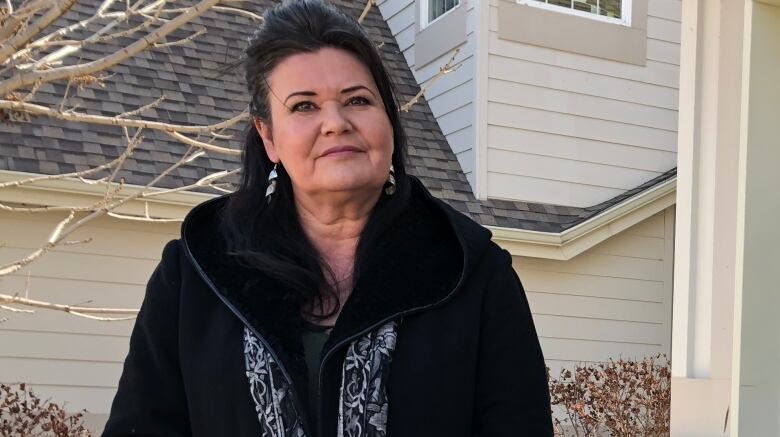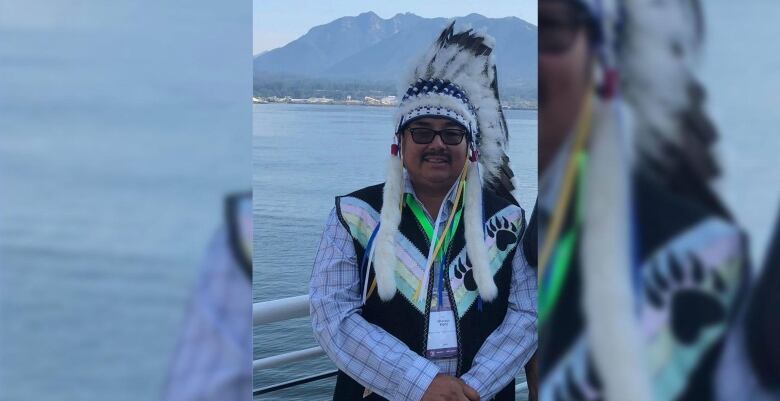First Nations people in Manitoba account for 25% of COVID-19 hospitalizations
Pandemic response team lead says First Nations people still at higher risk for severe illness

First Nations people in Manitobaaccount for 25 per cent of COVID-19 hospitalizations in the province,and 40 per cent of cases in ICU as of Jan. 18, according to the Manitoba First Nations COVID-19 Pandemic Response Co-ordination Team.
"It's not surprising. We've been hovering around 40 to 50 per cent at different waves throughout the pandemic," said Melanie MacKinnon, who leads the team.
She said First Nations people make up about 12 per cent of the Manitoba population.
As of Jan. 18, the pandemic response team's daily bulletin reported 152 First Nations people in Manitoba in the hospital due to COVID-19, with 57 of those cases reported being on-reserve, and 95 from off-reserve.
The bulletin also reported there were 20 First Nations people in Manitoba currently in ICU, with 12 of those being off-reserve cases.

MacKinnon saidit has been difficult to track how many casesreported on First Nationsare due tovariants of concernbecause of the time it takes to get testresults.
"We're waiting to hear back from our clinical leads in the province, to let us know about the sequencing between Omicron and Delta," said MacKinnon.
"But we are hearing that there are still a number of Delta cases in hospital."
MacKinnon said First Nations people remain at higher risk for severe illness and outcomes from COVID-19.
"I know that there's lots of talk about Omicron being milder or less severe, but we're not able to verify that as yet," she said.
"The data is not telling us that yet."
Black River First Nation declares outbreak
On Wednesday, Black River First Nation leadership sent a letter to its members declaring a COVID-19outbreak.
The band saidon Jan. 18there were sevennew cases, 23 active cases and 60 people in isolationon the reserve 120 kilometres northeast of Winnipeg.
Black River Chief Sheldon Kentsaid the community has lost a few members to COVID-19.
"That was because they went to the hospitals for other other services and then they picked up that virus there, then they passed away," he said.
"These are vulnerable ones that have compromised immune systems, cancer patients and dialysis patients."

Kent saidhe, along with all of the people in his household, tested positive this month, and that he worries the new cases are the Omicron variant.
"We haven't got confirmation of what kind of virus it is yet in our community, but the way it's spreading, we have to make the assumption that it's Omicron. Because it's spreading fast and we don't know how it's spreading," said Kent.
He said it has been getting more difficult to contain the spread of the disease, and that it has been hard to keep up with the contact tracing.
The band said in the letter they are going to be testing only those who are symptomatic, adding the community is facing a shortage of rapid test resources.
"We are having a challenge to get those rapid tests," said Kent.
"We're waiting for our shipments to come in from Amazon and different suppliers but they are still not in our community. We're just accessing what we can from provincial governments but their supplies are limited as well."












_(720p).jpg)


 OFFICIAL HD MUSIC VIDEO.jpg)
.jpg)



























































































